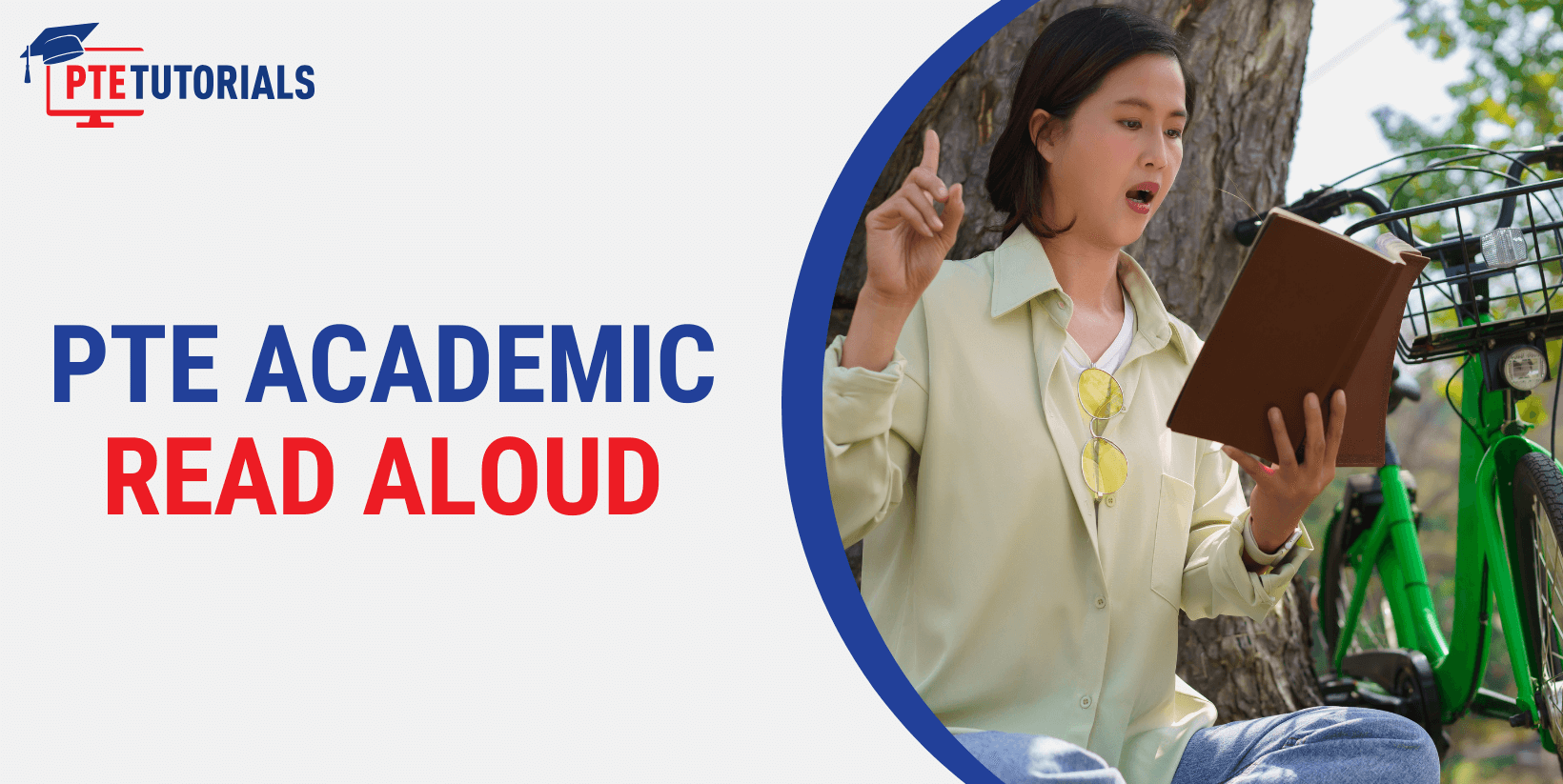
Easy Guide to Ace the PTE Read Aloud Task
The PTE Read Aloud task is where you read a text out loud. It's part of the Speaking section in the PTE test. This task checks how well you can read and speak English. Let's break it down into simple parts to help you do your best.
What's the Task About?
In this task, you get a short text on the screen. Your job is to read it out loud. The computer records what you say. It checks how clearly you speak and how well you pronounce words.
Where Does It Fit in the Test?
This task is in the Speaking section. It's the first challenge you face in this part of the test.
How Much Time Will It Take?
You get about 30-40 seconds to look at the text and prepare. Then, you have another 30-40 seconds to read it out loud. So, each question takes about 2-3 minutes in total.
What Will You See in the Task?
The texts can be about anything – from a simple story to facts about something. They're short enough to read in the time given.
How Should You Do It?
- Quick Look: Use your prep time to quickly look over the text. Find hard words.
- Speak Clearly: Say each word clearly. Don't rush.
- Keep Going: Try not to stop or say "um." Just keep reading.
- Sound Natural: Try to read like you're talking to someone. Use your voice to show commas and full stops.
Top Tips to Score Well:
- Read Out Loud Often: Practice reading different things out loud every day. This helps with tricky words and makes you more confident.
- Listen and Repeat: Listen to how native speakers talk. Try to copy their way of speaking.
- Slow and Steady: Don't rush. It's better to speak slowly and clearly than to make mistakes by going too fast.
- Breathe: If you're nervous, take a deep breath before starting. This helps you stay calm.
These questions cover a variety of topics to help you prepare for different types of texts you might encounter. Remember, the key is to practice reading these aloud, focusing on clear pronunciation, maintaining a steady pace, and using natural intonation.
Practice Questions for PTE Read Aloud Task
1. Renewable Energy:
Renewable energy sources like solar and wind power generate electricity without producing harmful pollutants. This makes them a key component in fighting climate change and protecting our planet for future generations.
2. Healthy Eating:
Eating a balanced diet is crucial for maintaining good health. It should include a variety of fruits and vegetables, whole grains, lean proteins, and healthy fats. Drinking plenty of water and limiting sugary drinks can also contribute to overall well-being.
3. The Water Cycle:
The water cycle is a continuous process by which water circulates between the earth's oceans, atmosphere, and land. This process includes evaporation, condensation, precipitation, and runoff, playing a vital role in supporting life on earth.
4. Importance of Exercise:
Regular physical activity can improve your muscle strength and boost your endurance. Exercise delivers oxygen and nutrients to your tissues and helps your cardiovascular system work more efficiently.
5. Globalization:
Globalization refers to the process by which businesses or other organizations develop international influence or start operating on an international scale. It has been facilitated by advances in transportation and communication technology.
6. The Internet of Things (IoT):
The Internet of Things, or IoT, is a system of interrelated computing devices, mechanical and digital machines, objects, animals, or people that are provided with unique identifiers and the ability to transfer data over a network without requiring human-to-human or human-to-computer interaction.
7. Artificial Intelligence:
Artificial Intelligence, or AI, is the simulation of human intelligence processes by machines, especially computer systems. These processes include learning, reasoning, and self-correction.
8. Conservation Efforts:
Conservation efforts are vital for protecting the natural world and preserving biodiversity. These efforts include protecting habitats, preventing pollution, and mitigating climate change impacts.
9. The Importance of Reading:
Reading not only enhances our knowledge but also develops our imagination, sharpens our critical thinking skills, and improves our vocabulary and language skills. It is a fundamental skill that influences success in education and beyond.
10. Space Exploration:
Space exploration has led to significant discoveries about our universe, including the understanding of planets, stars, and galaxies. It has also spurred technological advancements that have had practical applications on Earth.
Practicing these texts will help you get comfortable with the format of the Read Aloud task and improve your reading and speaking skills. Good luck!